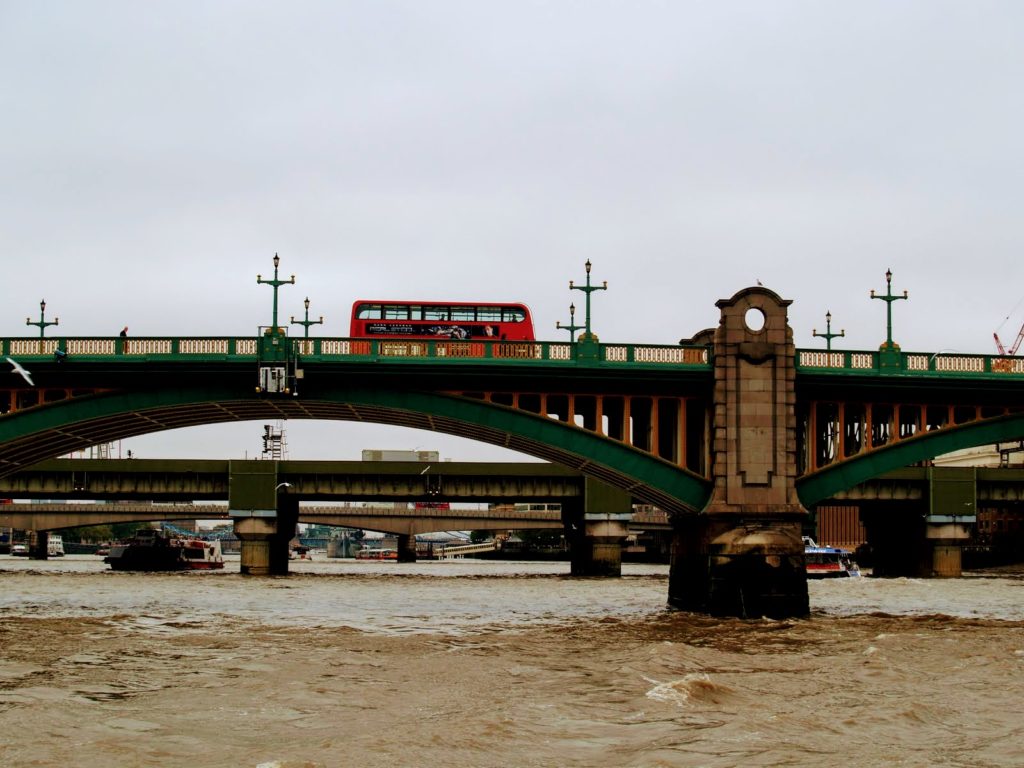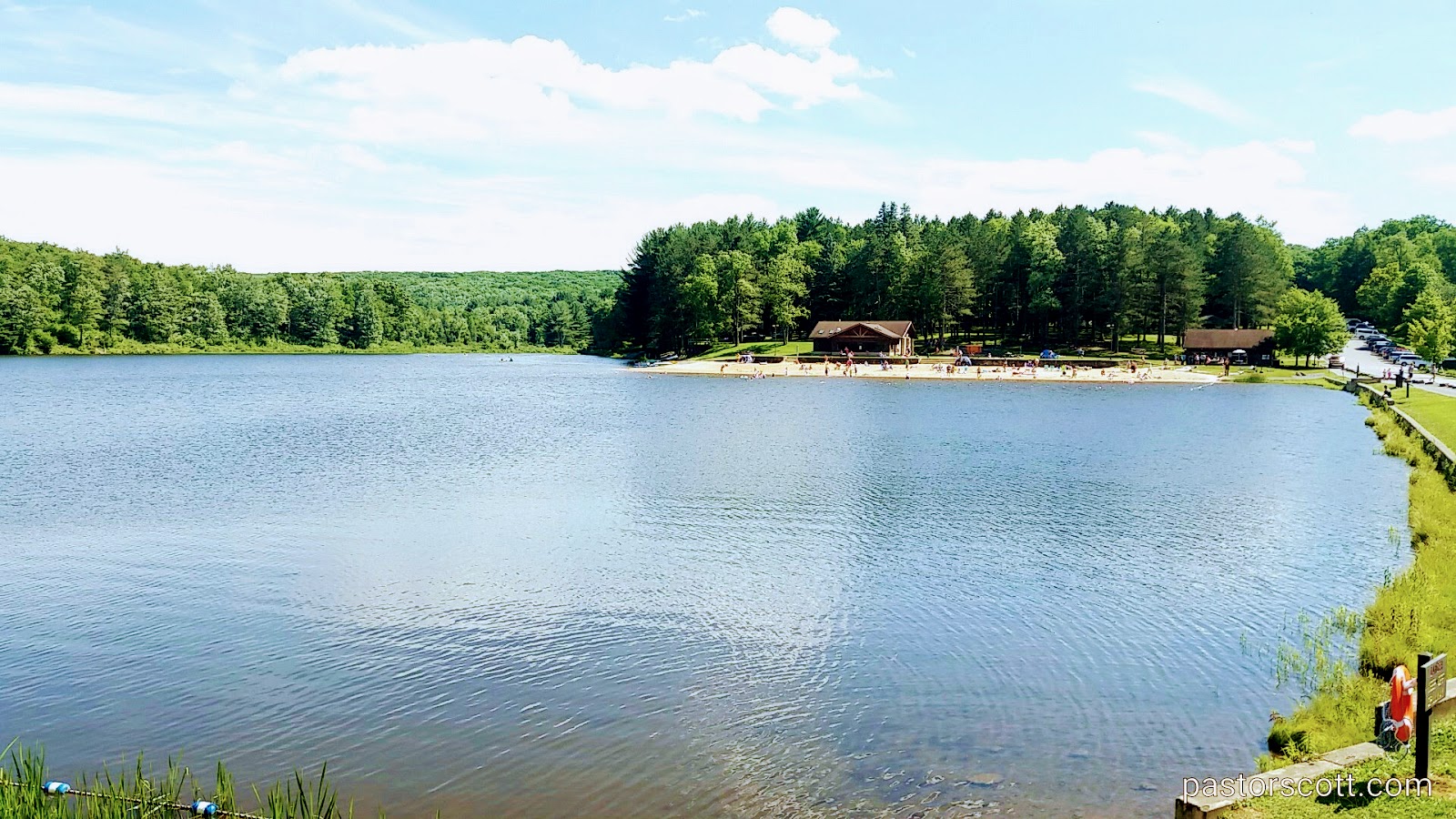
Sacred Space
Ezekiel 43: Draw a picture…
As a casual reader, one of the bewildering portions of Ezekiel has been, to me, all the measuring that takes place in the final chapters of the book. In his vision Ezekiel crawls all over the Temple measuring every nook and cranny, carefully taking note of every inch. If I thought about it at all I thought maybe these were the plans for the promised rebuilding of the Temple. However, I don’t think that’s the actual intent. The Lord tells Ezekiel, “Draw a picture so they can see the design and meaning and live by its design and intent.” Concerning the Temple the prophet is told, “Everything around it becomes holy ground.” God had called the people of Israel to be his own, holy nation. All the laws, rituals, and even the construction of the Temple had the purpose of helping to bring that to pass. In this case Ezekiel is to rediscover the power of the architecture of that place of worship. Ezekiel’s vision of the Temple is to remind his people of how far they’ve fallen from the holiness to which they were called. It’s also intended to give them hope and call them back to God. Ezekiel’s going to go right on with his vision, talking about the rituals and the work of the priests and the feasts, all with that same intent. However, I’m still thinking about the purpose of sacred space. The Temple wasn’t just built to be a functional place of worship. It was to call people to holiness — a place set apart for the worship of a God set apart by a people set apart. The layout and the furnishings weren’t just for practical use. Just looking at the building was to create longing for holiness. I don’t know that I’m deep enough to fully grasp this, but I’m reminded today that as I read of Ezekiel with his tape measure that there’s more going on than just the drawing of blueprints.
Take Away: Thank the Lord for those gifted in the design of buildings set apart for the purpose of worship.
Tag: Temple
Devotional on Haggai

Changing priorities
Haggai 1: The people procrastinate.
The land of Judah reels from a drought: no rain means no crops means no food. It’s a serious situation. Governor Zerubbabel feels a shred of hope as he sees prophet Haggai coming to meet him. Maybe the prophet has prevailed upon the Lord to send some rain. However, Haggai disappoints the governor. He’s heard from the Lord God and what he’s heard isn’t about rain. God’s man says that God’s displeased with them because they’ve settled in to their homeland but haven’t yet rebuilt the Temple. The Lord’s complaint is that they’ve found time to make their homes comfortable but they haven’t found time to repair the Temple which lies in ruins. Now, this charge of God doesn’t come the first day they arrive in Jerusalem. It’s likely that Haggai arrived with that first group of 50,000 people who returned from exile around 16 years earlier. At that time there was considerable emphasis on rebuilding the Temple. However, other needs were pressing so the Temple project was suspended as the city of Jerusalem was secured, permanent homes were constructed, and agricultural concerns were addressed. Along the way people got used to seeing the Temple as it was. Now, a serious drought threatens their welfare. Haggai says the lack of rain is God’s doing. The Lord’s getting their attention. There was a time for them to deal with the necessities of life but when the time came for them to take care of the Temple they put it off. This little book of our Old Testament is all about priorities. Apparently, the Lord didn’t mind their focusing on dealing with housing and food needed for survival. However, their place of worship was also a necessity and the Lord expected that matter to become a priority to them when the time was right. Today, I’m reminded that the priorities of my life are in constant flux. What I need to do at 8:00 in the morning gives way to what needs to be done at 11:00. Like a river, life flows along. Because of that, I have to keep up with the current priorities of my life.
Take Away: We have to keep up with the current priorities of our lives.
Devotional on Acts

How not to win friends and influence people
Acts 7: And you continue, so bullheaded.
The ragged transition in righteous Stephen’s sermon feels so out of place. He’s been debating with the religious leaders, and winning, so they come up with a scheme to lie about him and get him arrested. The charge is that Stephen claims Jesus of Nazareth is going to destroy the Temple and toss out the customs of Moses. Stephen’s defense begins innocently enough. For some reason he decides to recount the history of their people, from Abraham on. Everything he says is plain vanilla, middle of the road facts that every Jew knows. After several minutes of this walk through history Stephen arrives at the story of the building of the Temple. Now those who have made the charge that Stephen says the Temple is going to be destroyed by Jesus sit up and take notice. When Stephen reminds them that their own Scriptures state that God doesn’t live in any building made by man they, I think, decide he’s about to say the Temple isn’t important at all. Although it isn’t recorded in this passage, I believe that people start shouting Stephen down. That’s when he drops out of his sermon and responds by calling them “bullheaded,” “traitors,” and “murderers.” His enemies don’t take kindly to being thus accused and the result is that the mob lives down to Stephen’s description of them as murderers. I know I’m not anything close to being worthy of making a judgment call on this good man who, even as he’s being murdered prays for those doing the horrible deed. Still, I can’t help but wonder if things might have turned out differently had Stephen responded differently. It seems to me that when he gets into a shouting match with his adversaries that his opportunity to make any case at all is lost. Again, I know I’m not in a position to judge here but I think Christians are almost always more effective in spreading the Good News of Jesus when they live servant-lives, humble and kind. After all, Jesus said that when we’re rejected we’re to shake the dust off our feet and meekly move on. That feels a lot different to me than telling people they’re bullheaded murderers.
Take Away: Likely the best way to influence people for Christ is to take on the role of a servant while avoiding calling them names!
Devotional on 2 Samuel
I’m part of this story
2 Samuel 7: God himself will build you a house!
For David, the sun’s finally beginning to shine. His long struggle with Saul has come to an end. The promise made to him when he was a mere shepherd has come to pass and he sits securely on the throne of Israel. Even the Ark of the Covenant is now at rest in the city called the “City of David.” David’s comfortable and settled and he wants the same for the precious Chest of God, so he proposes the first ever permanent worship structure, a Temple, for Israel. To his surprise God says “no.” It isn’t that the Lord’s against the building of such a place but this is not the time. Still, God’s pleased with David and he tells him so. David will become one of the most famous people in the world. He’ll reign in peace and when his days on earth are over it will be one of his own offspring who will rule Israel. Even as the Lord fully rejected Saul he now fully accepts David. His family will rule Israel forever. David doesn’t know it, but he’s just heard the promise of the Messiah. One of his descendants will be King of kings and Lord of lords. He’ll rule, not only Israel, but all of Creation — forever! I’m not a part of the people of Israel but, today, I’m a beneficiary of the promise God makes to David. That ultimate Ruler only hinted at in this passage is the Ruler of my life. How wonderful to read about an event that happened thousands of years ago and to suddenly find myself a part of the story!
Take Away: All those who live by faith have a place in the story of the people of the Lord.
Devotional on 1 Kings
Move right on in
1Kings 8: Can it be that God will actually move into our neighborhood?
Solomon’s praying his great prayer of dedication of the newly constructed Temple. He understands that, while the Temple is an impressive house of worship, that God is bigger than any one place, even as beautiful a place as this is. With the thought in mind that God is the God of the universe and can’t be contained in any one place, Solomon prays that the Almighty will always be attentive to the worship done, and the prayers prayed, at this new Temple. He’s a wise man, after all God’s too big to really live among us, right? Well, not quite! Many years in the future God will do exactly what Solomon imagines being impossible. God will come to us. He’ll indeed move right into our neighborhood. As he does this, human beings will encounter God in a whole new way. And the story won’t end with the pages of the Gospels. God will come to us in the Person of the Holy Spirit, and in so doing, he’ll move right into the temple that is the heart of every willing person. He’ll not only be “with us,” but God, the Holy Spirit, will be “in us.” As impressive as the Temple is, and as lofty as Solomon’s prayer of dedication is, we have the privilege of God actually moving into the neighborhood of our lives today.
Take Away: Have you invited God, the Holy Spirit, to take up residence in your life?
Devotional on 1 Chronicles

Passing the vision along
1 Chronicles 22: I wanted in the worst way to build a sanctuary to honor my God. But God prevented me.
It was years earlier that David envisioned building a great House of Worship. The Lord blessed David for having that vision but he told David, “no.” David obediently yielded but the vision never faded. Now, late in his life David begins stockpiling materials for the great Temple project. There’s now a huge store of gold and silver and other precious building materials. David has also identified gifted stonecutters, masons, carpenters, and artisans. He’s still on the throne but he’s preparing for the day when his son Solomon ascends to leadership in Israel. The King has a father-son chat with his son, expressing his great disappointment in not being allowed to build the Temple, but also describing for Solomon all the preparations he’s made for its construction. Obviously, David wants Solomon to be infected with his vision. Worthwhile visions are, indeed, infectious. My enthusiasm is passed on to others who may actually accomplish more with it than I ever could. Also, David’s preparation efforts did a lot to assure that it would come to pass. David did more than dream of a Temple; he also did everything he could to prepare for its construction. Without that key ingredient all we have is good intentions. Visionary thinking includes not only thinking big, it includes real life preparation, and an intentional effort at vision casting.
Take Away: All the vision in the world is worthless without real life application.
Devotional on 1 Chronicles

Modern day Levites
1 Chronicles 23: The Levites no longer have to carry the Tabernacle.
Centuries earlier when Moses organized their ancestors the descendants of Levi were given the task of moving the Tabernacle and all its furnishings from place to place. It was a big job and it was their job. As Israel fell into the idol worship of the Book of Judges the Levites were still considered holy men, although the application of that position was a pitiful distortion of “holy.” Now things are coming together. Israel’s in possession of the Promised Land. They have a King who wants nothing more than to serve and please God. Their days of wandering in both the physical and spiritual wilderness are past. And the days of moving the Tabernacle, including the precious Ark of the Covenant are also over. David, displaying his organizational genius, counts the Levites and finds that there are 38,000 men of age of service. He divides them into subgroups and begins handing out assignments in keeping with the spirit of their original assignment generations earlier. From now on they may not have to carry the Tabernacle from place to place, but they’ll be the overseers of the Tabernacle and, once it’s built, the Temple. The priests, descendants of Aaron, will handle the sacrifices and such. These sons of Levi will take care of everything else associated with the Temple. As I realize how much David loves the yet-to-be-built Temple and watch as he puts these Levites in charge of it I see what a compliment he’s paying them. I know it’s not the same but I’m reminded of the people who accept responsibilities associated with the Church. Thank God for church treasurers, Sunday Superintendents, teachers, volunteer janitors, and many others who love the Church and faithfully give of their time, talent, and treasure. These, I think, are the modern day Levites.
Take Away: Never take faithful servants for granted. They serve the Lord just a significantly as the preachers and singers.
Devotional on 1 Chronicles

Security guards
1 Chronicles 26: The teams of security guards were from the family of Korah.
I’ve read this passage several times in various versions of the Bible, but since the sons of Korah were called “gatekeepers” it didn’t catch my attention. Now I see them being described as “security guards.” I guess that’s what gatekeepers are supposed to do: they provide security, seeing to it that all who enter are there for legitimate purposes. King David is such a multifaceted person. He’s a singer and songwriter and harp player, a skilled leader, and he’s a warrior who’s won countless battles. In this case, I see him drawing from his “warrior” skills in organizing the Levites. In spite of the peaceful conditions of the day David prepares for possible trouble. Now, it might be that the sons of Korah are basically ushers who tell people where the corral is for their soon to be sacrificed lamb but I’m guessing that David also wants them there “just in case.” I wonder to what extent, if any, this applies to the Church today. There have been some horror stories in the news, and, obviously, a church full of people is probably viewed as an easy target by some very bad people. I’m not seeing this as some kind of mandate, but there is, at least to some extent, a precedent here for a church to have at least some unofficial security.
Take Away: Leadership involves, in addition to having a vision and sense of direction, the ability to think through the practical concerns of the organization.
Devotional on 1 Chronicles

More than a meeting house
1 Chronicles 29: This is not just a place for people to meet each other, but a house for God to meet us.
David is raising funds for the construction of the Temple, which will be built by his son, Solomon. It’ll be an extravagant place of worship and the hub of the life of the nation. It’ll also be the place where God will meet with man. As the people of Israel grasp this lofty concept they begin to joyfully and generously give. “Sacred space” has always been important to the people of God. It isn’t that God can’t meet us out in the common places of life because he certainly does. It remains though, that setting aside times and places for the express purpose of encountering the Lord is not only biblical, but is spiritually beneficial too. Note that this passage doesn’t describe the creation of personal, private spiritual hide-a-ways. This passage reminds us of the value of having a place set aside for the purpose of cooperate meetings with the Almighty. As the people of God, we have much to gain by creating sacred space in which we wait upon the Lord together.
Take Away: We aren’t intended to be “Lone Ranger” Christians.
Devotional on 1 Chronicles

The children of good stewardship
1 Chronicles 29: It was all yours in the first place!
Centuries before Paul ever writes to Corinth, encouraging them to give selflessly and stating stewardship principles, David lays out some giving concepts for the people of Israel. They’re raising an offering for the construction of the Temple and David’s addressing the Almighty in prayer. He’s reminded that this nation began as pitiful slaves in Egypt, without a square inch of land to call their own. Over the years God blessed them and now they can no longer say, “Silver and gold have I none.” Still, in a real sense they continue to have nothing of their own. All that they have has been graciously provided to them by the Lord. As plans are being made to build a House of Worship it only makes sense that they return a portion of that which has been entrusted to them that the planned building might be constructed. The people come through with wonderful generosity and David prays that this giving spirit might always be seen in their lives. The result of all this is the Temple. Also, there’s a wonderful spirit of celebration. Great accomplishments and great joy: these things are offspring of good stewardship.
Take Away: When the people of the Lord are faithful stewards of all the Lord has placed in their hands great things are accomplished to the glory of God.
Devotional on 2 Chronicles

God is the best
2 Chronicles 2: The house I am building has to be the best, for our God is the best.
Solomon assumes the throne of Israel with one major task before him: the construction of the Temple. His father David has accomplished much. For one thing, Israel is secure, at peace with the surrounding nations. Solomon’s efforts will not have to be divided between ruling and defending his kingdom. For another thing, David has already stockpiled building materials and funds for the Temple work. Now, the responsibility for the actual construction comes to Solomon. The young king takes the job to heart. The Temple is to be a masterpiece because it’s to be the focus of the worship of Jehovah God. Some years earlier David declared that he’d not give to God that which cost him nothing, now Solomon says that the Temple must be the best because God is the best. So, how does my life measure up against this standard? Do I give God my best at every juncture of life? I don’t want to ask God to play second fiddle in any area of my life. After all, what I give to God has to be the best because God is the best.
Take Away: The Lord is the best and he deserves my best.
Devotional on 2 Chronicles

Jakin and Boaz
2 Chronicles 3: The right pillar he named Jakin (Security) and the left pillar he named Boaz (Stability).
These chapters of 2 Chronicles are devoted to the construction of the Temple. Some of the descriptions may be merely historical. Some things, though, like the perfect cube of the Holy of Holies likely carries meaning beyond the description. In the case of the two huge bronze (or copper) pillars at the doorway of the Temple, we don’t have to guess because we’re given the symbolic meaning. The six foot thick, twenty-seven foot tall pillars represent “Jakin” and “Boaz” – that is, Security and Stability. These are wonderful attributes whether we’re talking about the life of an individual or that of a nation. Every time the people of Israel of that era enter the Temple they’re reminded of the Source of their Security and Stability. We may not have a couple of large shining pillars at the entrance to our churches, but we certainly need to be reminded of the truth they symbolize. If I want to live a spiritually secure and stable life I must be firmly grounded in the Lord. The same benefit is available to a nation that allows the Lord to shape its character.
Take Away: We must build our lives on the Rock and not on the sand if we want to live secure, stabile lives.
Devotional on 2 Chronicles

I love it when God moves in
2 Chronicles 5: Then a billowing cloud filled The Temple of God.
Solomon’s building project is complete and it’s a great success. An impressive Temple is now the official place of worship for the people of Israel and all others who will come. The building is complete with the fixtures in place, the offerings ready, and the personnel standing ready to serve. Then God moves in. In a display of glory that hasn’t been seen since Moses climbed the mountain to meet the Almighty, the Glory of the Lord fills the Temple. The Presence of the Lord is so great, so real, that the priests can’t even carry out their assigned duties. Outside the Temple Solomon does the only reasonable thing: he begins to call on God in prayer. Today, I long for God’s glory to fall on his Church, for Him to come in such majesty that the order of worship is set aside and people begin to simply call on the Name of the Lord. Oh God, we seek, not so much the “billowing cloud” as we seek you. Pour yourself out upon your Church as you did upon the Temple so long ago.
Take Away: The people of the Lord need to seek and, yes, expect, the Lord to fill our worship services with himself.
Devotional on 2 Chronicles
The unfailing faithfulness of God
2 Chronicles 6: And now you see the promise completed.
Solomon is presiding over the dedication of the new Temple and soon he’ll pray his great dedication prayer. He’s giving his dedication speech about how years earlier the Lord promised David that his son would build a place of worship. David then gave the last years of his life preparing for this great construction project. Now, it’s finished and it’s not only a beautiful house of worship but is a monument to the trustworthiness of God who always keeps his promises. As I read and write devotionally from the Bible this theme comes up quite often and it’s no big surprise that it does. In the opening pages of the Bible, right after that Fall God begins making promises. Following the Flood there’s another big promise that the Lord will never again send a flood to wipe humanity off the face of the earth. Then, we come to a major promise as the Lord speaks to Abram. We find instances of God making and then keeping promises throughout the Scriptures. Here, as Solomon is about to pray his memorable prayer of dedication, he prefaces it by reminding us that God is the original Promise Maker and Promise Keeper. So, as we’re about to bow our heads and listen to the prayer of the wise King, let’s take one more look at the gleaming white Temple and remember that God is always faithful.
Take Away: Heaven and earth may pass away but his word will never pass away.
Devotional on 2 Chronicles

Those trumpets would have blown me away!
2 Chronicles 7: The priests were all on duty; the choir and orchestra of Levites…were all there…the priests blew trumpets.
Now this is a worship event! As the new Temple is dedicated it’s an all-out, no expenses spared, all hands on deck worship mega-event. All the priests, wearing their rich garments, are on duty. The Levite choir sings to the top of its lungs while the orchestra provides the music. Over here, we see the trumpet players all enthusiastically sounding the call to worship. The worshipers are on their feet, glorifying God. Our finest worship events today can only hope to match this exciting, awe-filled event that is the dedication of the Temple. I’ve been to some “biggies” in my life like Nazarene General Assembly, Promise Keepers, and some wonderful camp meetings. While I know these aren’t every Sunday events, I think they have a place in the worship life of God’s people. There’s something about combining excellent music, Spirit-filled preaching, and an awesome venue that stirs something deep inside of us. On one hand, there’s much to be said for worshiping in the simplicity of a small church that just loves Jesus. I’m all for it. Still, on the other hand, there’s something to be gained by being part of an all-out, no-holds-barred, let’s-go-for-it worship experience. There’s room in my heart for both!
Take Away: God is worth it!
Devotional on Ezra

The remember-ers
Ezra 3: People couldn’t distinguish the shouting from the weeping.
Joining the young adventurers in returning to rebuild the Temple at Jerusalem are some who, as young children, saw the Temple before its destruction. When they hear of the expedition to Jerusalem they bravely sign up to return to the land of their birth. These people have stories to tell of what life was like in Jerusalem before it was destroyed. When they stand before the pile of stones that was the center piece of the city their memories are almost more than they can bear. More than anyone else these senior adults realize all that’s been lost. Now, as the foundation for the new Temple is being laid and the dedication celebration is taking place, the younger people shout in excitement. These “remember-ers,” however, begin to weep aloud. Their weeping is a mixture of sadness and joy. They join with the younger people in rejoicing over prospect of the place of worship being rebuilt but they’re saddened as they remember just how much has been lost. The rebuilding of the Temple means a return to God. For the younger people, this is something new and thrilling. It takes the senior adults, those who’ve been “around the block” a few times, to fully appreciate the power of this event. As I hear these white-haired people weeping aloud I’m reminded of the depth some precious “senior saints” provide to my life.
Take Away: Senior Christians offer a depth of perspective that won’t come from any other source.
Devotional on Ezra

Professional discouragers
Ezra 4: They even hired propagandists to sap their resolve.
Beyond the actual challenge of rebuilding the Temple in the ruins of Jerusalem is the presence of those who oppose the project. People from distant lands were exiled to this area in the same way that the people of Israel were moved elsewhere. Now, the new residents (and I say “new” guardedly because they’ve been there over 60 years) view the presence and work of the Jews with suspicion and hostility. At first these people offer to participate in the project, but it’s almost certainly an offer made with ulterior motives. When that fails, they go to work trying to stop the work. At one point they even hire people to give their time to discouraging the builders and those “discouragers” pretty much succeed. For 15 years the big project limps along and then, thanks to a carefully worded letter to the new king, the work is stopped altogether. This incident is a good reminder that we should never deceive ourselves into thinking that because we’re doing the right thing and giving sacrificially to the work of God that things are going to go smoothly. For one thing there are some “professional propagandists” (some of them on the “inside” of things) who’ll do all they can to divert our attention away from that to which we’re called.
Take Away: Beware of listening to, or even worse, being, a professional discourager.
Devotional on Ezra

God and “good old boy” politics
Ezra 5: Who issued you a permit to rebuild this Temple and restore it to use?
Years ago our small south Texas congregation was preparing for a building project. For a larger church, this would have been a drop in the bucket, but for us, it was a big deal. One key element was that we needed a city code variance to build a few feet closer to the street than was normally allowed. The whole project depended on that variance. We went to the city planning commission and presented our case. They took it under advisement and then turned us down. This put our project back to stage zero. Disappointed, we went back to the drawing board. A couple of weeks later I noted that the small grocery store across the street from our church was getting ready to do some remodeling. It just so happened that they needed (you guessed it) a zoning variance that was almost exactly the same as the one we had had rejected. No doubt, small town politics had a hand in it and their variance was approved. We went back to the city and asked to be put on the agenda for the next meeting. When our turn came, one of the members asked, in a perplexed voice, “Isn’t this the exact same plans that we turned down a few weeks ago? What makes you think we’ll accept them now?” I patiently replied, “We think you should reconsider in light of your giving the grocery store next door to us a variance to do the exact same thing.” There was a moment as the facts of the matter became apparent to the commission, then one of them said, “I think we should give the church its building permit.” Isn’t it interesting how the Lord can navigate through small town politics? In light of the passage before us, we see that he’s just as good in working through big government. Never count God out of the equation.
Take Away: The Lord can handle building permits, city ordinances, and such.
Devotional on Ezra

God and construction projects
Ezra 6: …you are to help the leaders of the Jews in the rebuilding of that Temple of God.
Orders to stop rebuilding the Temple brought the project to a halt for about 3 years. In time, two prophets, Haggai and Zechariah, began to urge the people to get back to work. Now, the precise chronology of the letters and which king wrote what is a bit muddy, but that doesn’t diminish the actual story here. First, the king receives a letter that causes him to issue a stop order to the Jews who are rebuilding the Temple. Then, upon the urging of the prophets, the work is started again. The regional governor writes to the king to report what’s happening, and, upon review, the king finds that years earlier they had not only been given permission to rebuild, but were ordered to do so. He responds by directing the governor to allow the work to continue, and beyond that, to assist in any way he’s asked to. The temporary halt to the program actually results in the full support of the current king and speeds up the process. Even though there’s a bit of a mystery in these passages about who is king when there’s a clear message that God works even through what we see to be road blocks to our obedience to his will. This is a difficult lesson for us to learn, as we want green lights all the way before we even start. It’s hard to understand how God’s “go” and how the on-the-ground circumstances that force a “stop” can be working together, but, sometimes, that’s just how it is.
Take Away: The Lord works through circumstances beyond our control to accomplish his purposes.
Devotional on Ezra

God’s man at God’s time in God’s place
Ezra 7: Ezra had committed himself to studying the Revelation of God, to living it, and to teaching Israel to live its truths and ways.
Ezra doesn’t make an appearance in the book of the Bible that bears his name until well into the second half of the book. By the time he arrives in Jerusalem the Temple project is complete and worship activities have begun there. This direct descendant of Aaron, the first priest of Israel, is as much historian as he is priest. In spite of his being born in a land far from Jerusalem, he committed himself to the study of God’s Word. Because of this he’s both a priest and a scholar. It’s this that makes him so valuable to the returned exiles. They have a Temple and now they need a spiritual leader to help them learn how to be a people of God. Ezra is God’s man at God’s time in God’s place. The verse quoted is a preacher’s dream! There are three obvious points and each provides lots of preaching material. First, Ezra has committed himself to studying God’s Word. Second, beyond studying it, he personally lives it. Third, he has a burning desire to teach God’s ways to others. It is when he’s given the opportunity to do the third goal of his life that Ezra travels to Jerusalem to be the leader and teacher of God’s people there.
Take Away: Thank the Lord for putting the right people in the right places at the right times in history.
